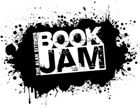In celebration of National Poetry Month, we’re again sharing excerpts and accompanying activities for some of our favorite poetry on audio for K-12. Poetry on audio is a great way to introduce students to poetry—they hear proper meter, diction, and pronunciation, allowing them to more easily analyze complex figurative language. If you use this or other audio in your classroom, leave a comment to this post telling us how and you’ll be entered to win a copy of one of the books below on CD! (See the end of this post for details.) All of the audiobooks mentioned in this post are available unabridged from Recorded Books.
 The Spoken Arts Treasury Volume 2: 100 Modern American Poets Reading Their Poetry
The Spoken Arts Treasury Volume 2: 100 Modern American Poets Reading Their Poetry
AudioFile Earphones Award Winner
Bonus Audio Download!: “Falling Asleep Over the Aeneid” by Robert Lowell (text version)
Audio Excerpt: “The Negro Speaks of Rivers” by Langston Hughes (text and additional audio)
Lesson Plan: Narration Comparison and Close Reading
 Locomotion by Jacqueline Woodson
Locomotion by Jacqueline Woodson
AudioFile Earphones Award Winner, National Book Award Finalist (Young People’s Literature), Coretta Scott King Honor Book
Audio Excerpt: List Poem
Lesson Plan: Write Your Own List Poem
 Joyful Noise: Poems for Two Voices by Paul Fleischman
Joyful Noise: Poems for Two Voices by Paul Fleischman
Newbery Award Winner
See our past posts for four sets of complete lesson plans, plus the entire downloadable audiobook!
Lesson Plans 1: Identify how form influences function.
Lesson Plans 2: Descriptive Verbs, Alliteration, Metaphors and Similes
Lesson Plans 3: Point of View
Lesson Plans 4: Meter, Rhythm, and Tempo
 If You’re Not Here, Please Raise Your Hand: Poems About School by Kalli Dakos
If You’re Not Here, Please Raise Your Hand: Poems About School by Kalli Dakos
An International Reading Association Children’s Choice
Audio Excerpt: Hiding in the Bathroom & A Lifetime in Third Grade
Lesson Plan: Point of View and Figurative Language (2 pages)
CONTEST RULES:
* Leave a comment below (be sure to enter a valid email address, or we won’t be able to contact you if you win!) telling us how you share poetry with your students or what your favorite National Poetry Month activity is. We’ll pick our favorite response to win!
* Tweet (we’re @recordedbooks) or blog about the contest using the hashtag #rbk12 and you can leave a second comment linking to your tweet or post—you’ll get another contest entry. Spread the word!
* Again, be sure you leave a valid email address with your comment so we can contact you. If you’re picked as a winner and we can’t contact you, the prize will got to the next winner. (You don’t need to re-enter your address within the body of the comment, though. Just be sure it’s in the form when you leave your comment.)
* Drawing will be held on April 30, 2010 at 12:00PM Eastern time. Winners will be contacted by email to get mailing information. The winner will receive one copy of one of the titles mentioned above (winner’s choice) on CD.
Filed under: Audiobooks and Education, K-12 Education | Tagged: education, national poetry month, poems, poetry | 37 Comments »











 Enjoy this free audio lesson guide for 1989 Newbery Medal winner
Enjoy this free audio lesson guide for 1989 Newbery Medal winner 







